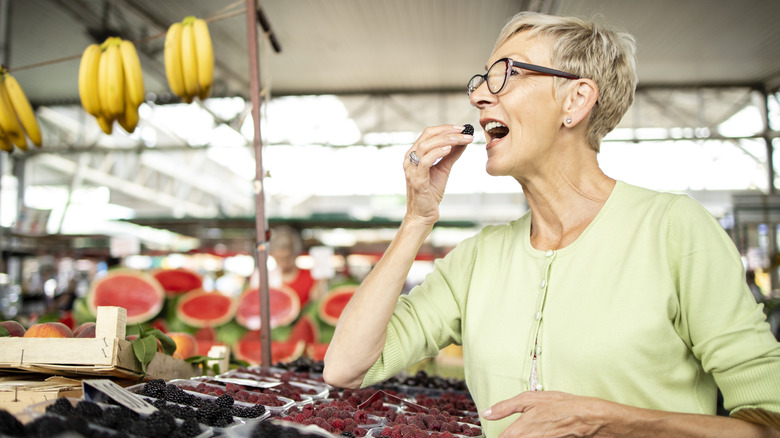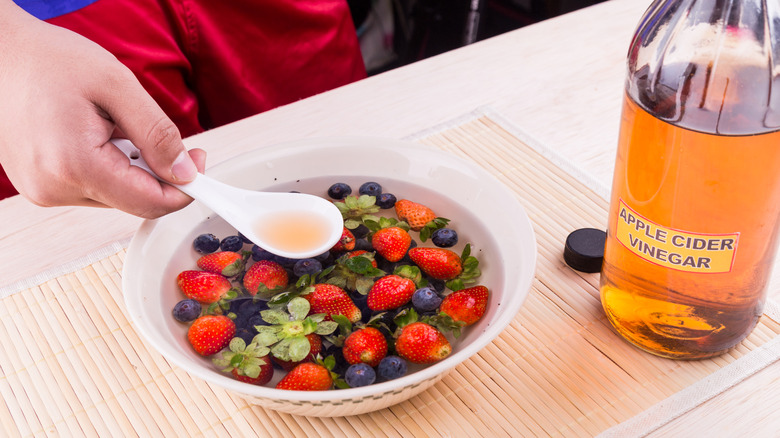The Hidden Risk Of Sampling Berries At The Grocery Store
It may seem harmless to sample a berry or two from a clamshell at the grocery store — after all, you just want to make sure they're sweet, right? Yes, and no. Under a microscope, an unwashed berry can reveal a surprising (and unpleasant) mix of what's lurking throughout. While pesticides on the berries are important to consider, a greater concern before sampling is the type of germs and microbugs the berries have collected on and within their porous skin throughout their journey from the field to the grocery store (or farmers' market). These germs could be harmful bacteria, viruses, or parasites, which the microbugs could also be carriers of. All it takes is just a sample of one unwashed berry to make you sick.
Salmonella and E. Coli have been linked to outbreaks of food-borne illnesses caused by the bacteria on unwashed berries. The same is true for different types of parasites, as well as viruses like norovirus and hepatitis A linked to frozen berries, which were a part of frozen recalls at Costco that affected millions.
If you think there are no bugs on the berries you picked up, think again. Microbugs, which can't always be seen by the naked eye, nestle within berries either in the field or during transport. While some sources suggest they're harmless to human consumption, studies indicate they can also be carriers of the aforementioned germ-causing illnesses.
Berries are loaded with pesticides -- here's what you can do about it
Regarding pesticides — substances sprayed on crops to kill or repel insects, weeds, fungi, and other pests that can harm yields — store-bought berries (including grapes) are among the most heavily treated produce. Research shows two key things: These chemicals are linked to potential health issues such as certain cancers, endocrine disruption, neurological disorders, respiratory problems, and reproductive health issues, and they can remain on fruits even after washing. The good news is that such health effects are typically associated with long-term exposure, but short-term exposure, such as from eating one berry, can also cause acute poisoning. According to the National Pesticide Information Center, no washing method removes pesticides completely, but organic berries generally contain less pesticide residue than conventional ones. Choosing organic when possible may help reduce overall exposure.
The best insurance policy when it comes to store-bought berries is to wait until they've been thoroughly washed before eating. You can tell a lot by how a berry looks and smells, so it's better to judge a berry's quality based on these characteristics instead of sampling. Simply rinsing berries in a colander under cold running water for at least 20 seconds has been shown to can go a long way in removing dirt, germs, and some pesticides. For extra cleansing power, soaking berries in a baking soda or vinegar solution has been proven to reduce even more contaminants than water alone.

